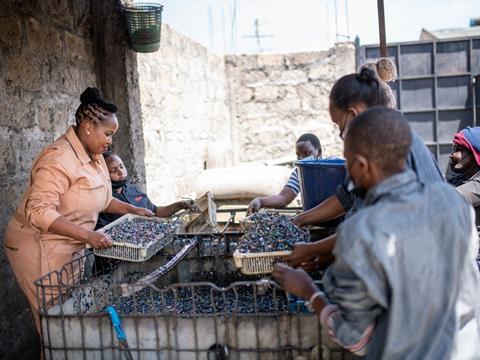
Borealis and Ecopost are collaborating to scale up the collection and recycling of plastic waste in Kenya by formalising collecting processes, expanding its recycling capacity, and training and recruiting collectors.
Nairobi alone is said to generate over 2,400 tons of solid waste daily, with the figure exceeding 22,000 tons throughout Kenya. Additionally, 36% of Kenyans are thought to be living below the poverty line, earning less than US$1.90 a day.
Ecopost’s scalable model aims to combat waste and provide financial instability amongst Kenya’s citizens by driving collection and recycling while creating jobs as operators, plastic waste collectors, and distributors. It seeks to formalise the waste-picking process by incorporating training and capacity building across the value chain and providing a regular, fair wage for workers, many of whom are marginalised women and youth groups.
Borealis is set to fund capacity building, training, and engaging more waste collectors, alongside entrepreneurial start-up kits for minority groups working in the waste collection sector. These efforts share the ultimate goal of advancing waste recycling in Kenya and promoting a circular economy in line with the UN’s Sustainable Development Goals.
“We very much welcome Borealis’ support of our activities to implement the selected modules to improve the informal waste collection,” says Lorna Rutto, CEO of Ecopost Ltd. “The funds will make a positive impact on Ecopost as well as thousands of young people and women in the marginalised areas. It will be incredibly valuable in creating a more positive socio-economic and environmental impact.”
“Mismanaged waste adversely impacts livelihoods, human health and hinders sustainable development,” adds Markus Horcher, director of Sustainability and Public Affairs at Borealis. “Partnering with Ecopost not only complements Borealis’ vision towards a circular economy, but also helps reducing socio-economic differences, a key target area of the Borealis Social Fund.”
Recent winners of the Afri-Plastics Challenge includes Green Industry Plast – Togo, which seeks to establish collection and recycling infrastructure to reduce pollution and produce resources in Lomé as well as training up vulnerable women and young people. Chanja Datti also facilitates the direct purchase of collected plastic from waste pickers and aggregators to support marginalised groups in Nigeria.
The Equatorial Coca-Cola Bottling Company also reached the finals of the Sustainability Awards 2022 with its work in Guinea and Morocco to collect and recycle one bottle or can for each one it sells.


















No comments yet